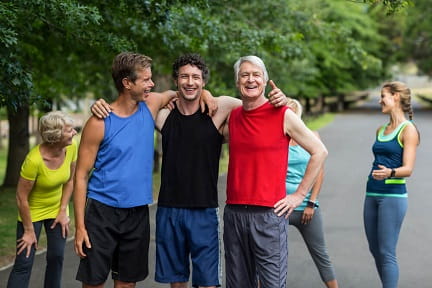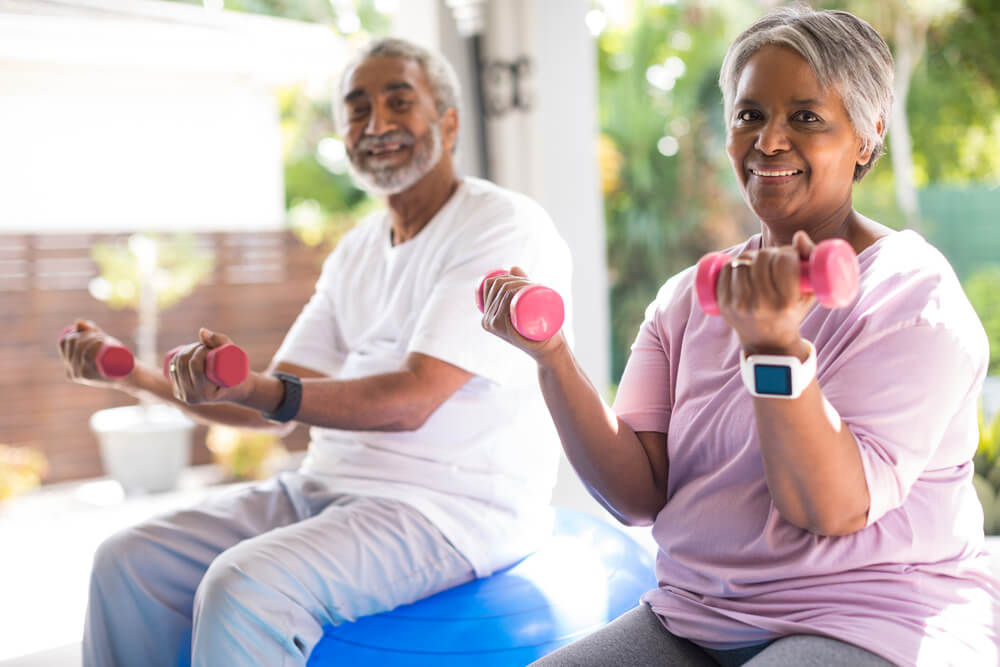Think you’re too old to start running? Think again! Every year, more and more seniors are starting (and finishing) major marathons, with ages 60+ being the fast-growing group. In fact, the 2018 Boston Marathon boasted 8,765 runners over the age of 50—that’s nearly one-third of the total runners in the field—and more than 84 percent of them finished!
Our Aging Bodies
There’s no doubt that changes take place in our bodies as we age, and we need to be mindful of these changes when beginning any new form of exercise. The main physical changes that’ll affect our marathon training are:
- Decreased maximal oxygen uptake
- Slower recovery time after training
- Decreased strength and flexibility
- Decreased muscle mass and endurance
- Slower reaction time
Training for a Marathon After Age 50
Marathon training after age 50 doesn’t have to look that much different from training in our 20s and 30s—but you do need to be committed. Allow at least six months to train, and longer than that if you need to get your body into good physical condition first. Here are some more tips:
Vary your training
In your 20s, you might have been able to run six days a week without any issues, but in your 50s, 60s and beyond, overtraining is a sure recipe for a stress fracture or a muscle strain. Schedule lower impact days, when you can swim or ride a stationary bike, to allow your muscles time to recover. You’ll also want to incorporate strength training with weights—this is especially important for women, who lose bone mass as they age.
Be flexible
It’s okay if you aren’t the fastest runner in the field. You aren’t racing against anyone other than yourself—and that’s your current self, not your 20-year-old self. It’s okay to use the run/walk method of training and participating in a marathon, which is easier on the joints and helps prevent muscle fatigue. And, if you aren’t having fun training to run 26.2 miles, it’s okay to reconsider your goals. Maybe training for a 10k would be more enjoyable.
Balance is key
More than ever, healthy eating and sleeping habits are just as important as the physical training. Focus on including a variety of nutritious foods from all of the food groups, rather than excluding categories of food from your diet. And, if your body cries out for more sleep when your alarm goes off, give it what it needs, even if you have to drop a mile from that morning’s run.




